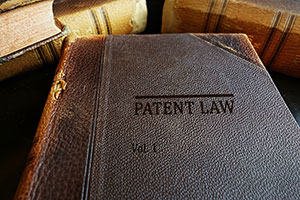The U.S. Court of Appeals for the Federal Circuit has issued a precedential decision denying the U.S. Patent and Trademark Office’s request to shift expert witness fees.
The Underlying Dispute
Gilbert Hyatt is an individual who has filed and litigated many U.S. patents. In 1995 alone, Hyatt filed hundreds of lengthy and complex patent applications. Four of the many patent applications that Hyatt filed in 1995 included 1:05-CV-2310-RCL, 1:09-CV1864-RCL, 1:09-CV-1869-RCL, and 1:09-CV-1872-RCL.
After adverse results at the U.S. Patent and Trademark Office (PTO) regarding the four patents at issue, Hyatt sued the PTO under 35 U.S.C. § 145, which allows a patent applicant to challenge a PTO decision in district court. The PTO filed a motion to dismiss Hyatt’s suit, arguing that his patent should be unenforceable because of the unreasonable and unexplained delay in prosecuting his patent, which was an abuse of the patent system. The district court rejected the PTO’s arguments and ordered it to issue a patent covering some of Hyatt’s claims. The PTO appealed.
While the appeal was pending in the U.S. Court of Appeals for the Federal Circuit, Hyatt filed a motion to recover his attorney’s fees under the Equal Access to Justice Act. The district court granted this motion in part because Hyatt had won his case in district court. The U.S. Court of Appeals for the Federal Circuit vacated and remanded this decision, ruling that the PTO had met its initial burden of proving its case, therefore, Hyatt was not the prevailing party and not entitled to attorney’s fees.
The PTO simultaneously filed a motion to recover its expert witness fees under 35 U.S.C. § 145, which states that “[a]ll the expenses of the proceeding shall be paid by the applicant.” The district court noted that there was no precedent dealing with the American Rule presumption against fee-shifting and denied the award of expert witness fees. The PTO appealed.
The U.S. Court of Appeals for the Federal Circuit
The court immediately vacated the district court’s award of attorney’s fees to Hyatt because, after it had remanded the case, he could not be considered a prevailing party. It then examined whether 35 U.S.C. § 145’s language that “[a]ll the expenses of the proceedings shall be paid by the applicant” requires that the applicant pay the expert witness fees of the PTO.
The court noted that the U.S. Supreme Court has upheld the “American Rule,” which requires that litigants pay their own fees “unless a statute or contract provides otherwise.” For a law to overcome the presumption set by the American Rule, “Congress must provide a sufficiently ‘specific and explicit’ indication of its intent to overcome the American Rule’s presumption against fee shifting.”
The court then interpreted the language of § 145 and determined that it was not sufficiently specific to overcome the presumption against fee-shifting. It affirmed the decision of the district court.




